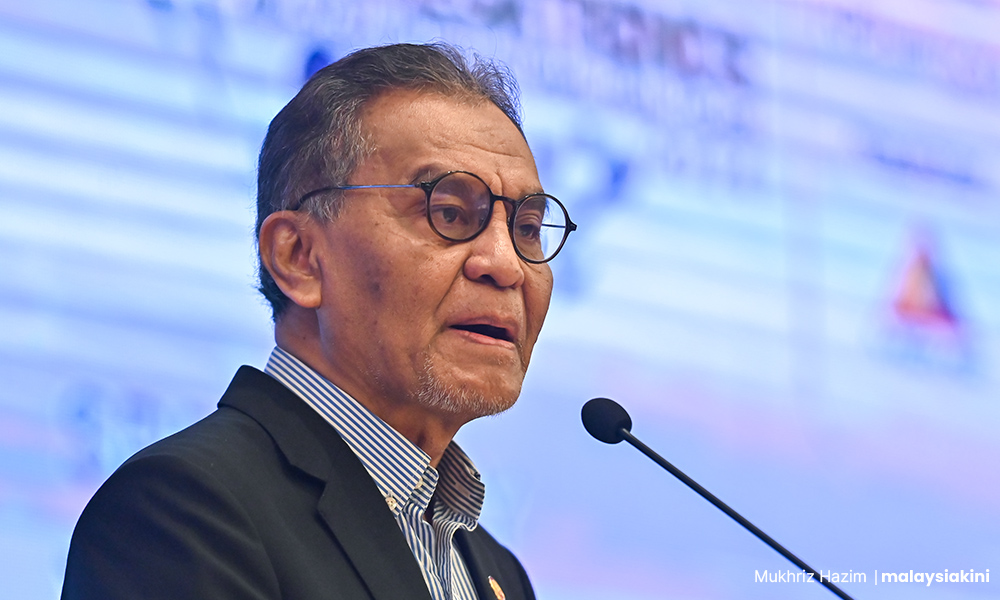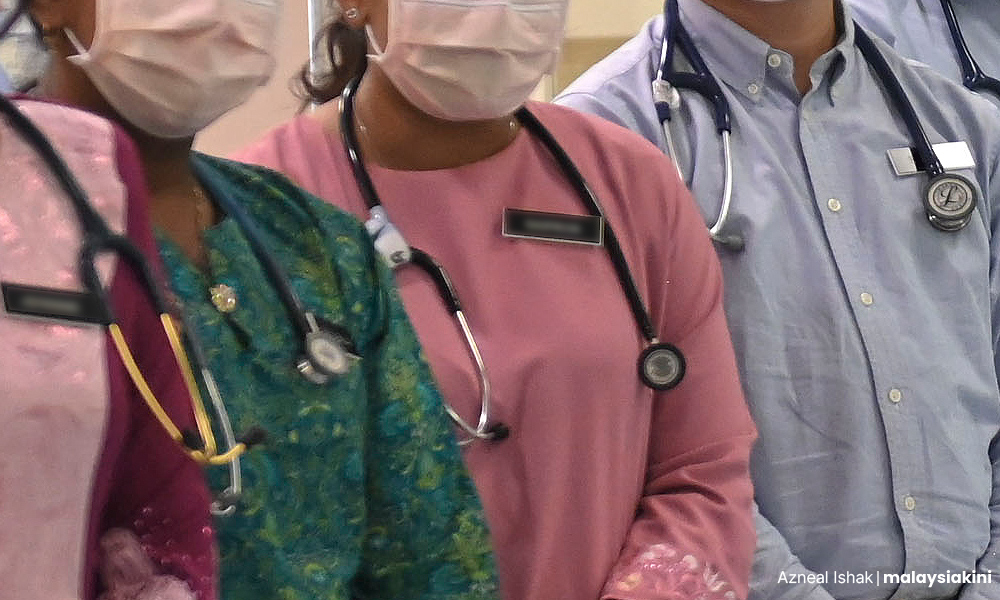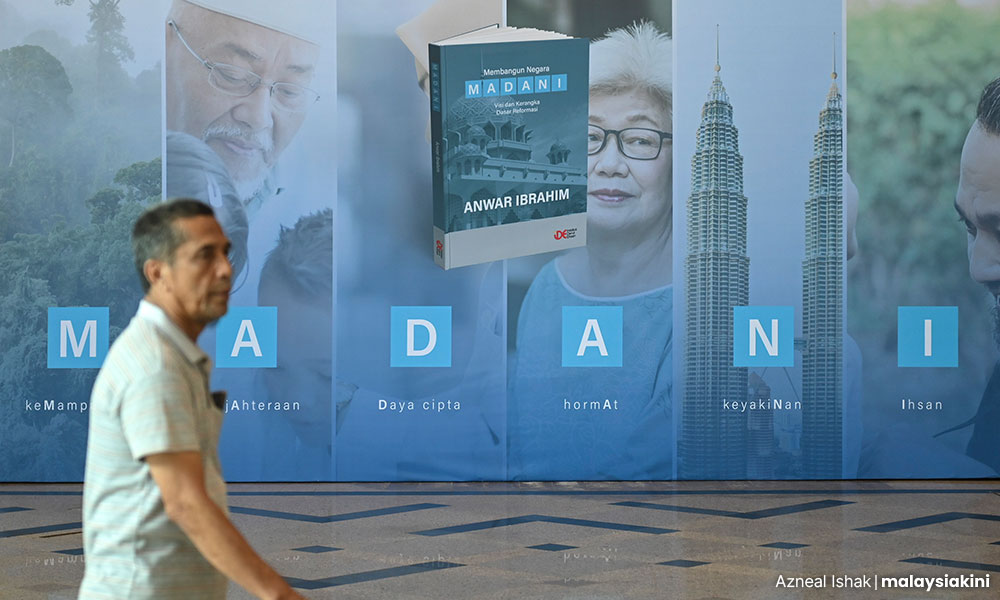PSM is extremely disappointed to hear from Health Minister Dzulkefly Ahmad that the government is thinking of opening private wings in government hospitals under “Rakan MOH”.
The previous avatar of this retrogressive plan – then termed the Full Paying Patient (FPP) scheme – was first announced by the then-BN government in 2007.
PSM then rallied a coalition of NGOs and activists to object to this plan by organising a series of protests including at the four government hospitals in 2011 that were selected to expand this scheme.
These PSM-civil society protests resulted in the postponement of the further implementation of the scheme for a couple of years. Still, after that, the government implemented the FPP scheme without fanfare in 11 general hospitals.
PSM rallied people against the FPP scheme because we genuinely felt it would be bad for ordinary citizens.
The problem with our government hospitals is that we do not have enough senior, experienced specialists to treat the more complicated cases and to train the younger specialists.

Approximately 75 percent of specialists with over 10 years of experience post-specialisation are in private hospitals that have mushroomed across the country, leaving only 25 percent of this group in government hospitals.
And it is in government hospitals where, up till now, more than 75 percent of the in-patients are being treated and the new generation of specialists is being trained.
The chronic lack of experienced specialists translates into very long waiting times for patients with complicated conditions, delays in diagnosis and treatment, misdiagnoses, inadequacy of training programmes for younger doctors trying to specialise, and more stress for junior doctors who have to handle the heavy patient load without adequate backup.
Pitfalls of the FPP
This is why we protested the FPP scheme back in 2011.
Its surreptitious implementation in 11 hospitals in the years that followed has demonstrated very clearly that our apprehensions about the FPP scheme were largely correct.

The FPP scheme allows senior doctors to see private patients “after office hours” in government hospital premises, and charge them private rates.
Many senior government specialists partook in the FPP judiciously and limited their private patient time to less than 10 hours per week.
However, there were a significant number who spent excessive time seeing their private patients. These over-enthusiastic specialists were able to earn more than twice their government salary through this scheme.
But this had a deleterious effect on the morale of other specialists who had to bear the responsibilities of looking after ordinary “non-paying” patients. It also affected the training of young specialists.
If you dig a little deeper, the FPP scheme actually creates a serious conflict of interest for the specialists who participate in it. Patients will only come to the FPP clinics if the waiting list in the free public clinic is too long and the service there is a little “suspect”.
One of the responsibilities of senior government specialists, who are mostly heads of their respective departments, is to improve their unit’s performance – in terms of waiting time, the competence of junior specialists in their department, etc.
However, a better-run, efficient public clinic would mean fewer patients for the FPP clinic.
We know with certainty that the Health Ministry has asked hospitals implementing the FPP scheme to carry out internal audits regarding the impact of the scheme on patient care, junior doctor training, and the morale of government doctors.

We have heard many of these internal audits are quite critical of the scheme, having identified numerous shortcomings. Has the current health minister taken a look at these internal audits?
Perhaps he should, and if they aren’t as bad as the PSM has been told, release them for public viewing before implementing the avatar of the FPP scheme – the Private Wings scheme.
PSM would like to remind our friends in the Madani government that they came in with the promise of reforming the government to benefit the common man.
Channel money to the people
We totally understand they are concerned about the RM1.2 trillion sovereign debt the government is facing, and their desire to reduce the budget deficit from its current five percent of GDP to three percent or lower.
We get that. But what we strongly disagree with is any measure that in effect transfers resources away from the ordinary man on the street.
Our healthcare system is struggling with a shortage of senior specialists. Any measure that reduces the availability of specialists for the rakyat is totally unacceptable. We consider it extremely irresponsible.
Why irresponsible? Because you, Madani, are the government. You have much more power than we had when we were together in the opposition criticising the BN government.

You must use your position and power to address the difficult questions like, how is it, in a country whose GDP in real terms has increased 25-fold (i.e. after discounting for inflation) in the past 50 years, government revenue has dropped from about 30 percent of GDP 50 years ago to its current 14 percent.
This is the crux of the problem, isn’t it? An increasingly smaller portion of the income this country is generating is accruing to the government.
That is why the government does not have enough funds to spend on healthcare, start an old age pension scheme, accelerate the transition to green energy, rehabilitate our rivers and forests, and upgrade our management of municipal waste.
All of these are not profitable ventures and thus will not be undertaken by the private sector.
In a properly functioning economy, a reasonable proportion of the wealth collectively generated by society must be channelled to the government to fund all the programmes and services that the private sector is not interested in.
Unfortunately, in Malaysia, as well as in many other countries, the proportion of societal wealth that is being allocated to make life better for all citizens is diminishing over time. Why is this so? Can it be reversed?
These are the crucially important issues that the government must look into. Are you guys in the Madani government even addressing these issues? That would be a responsible exercise of the powers that the people have entrusted to you.
If, instead of looking to address the misallocation of the income of the country, the Madani government persists in poorly thought-out policies that affect the well-being of the rakyat, do not expect the PSM to look the other way.
Our public healthcare system is a concrete expression of our people’s desire to create a caring inclusive society premised on the solidarity of all the people living in this country.
Our public healthcare system, in a very real way, defines the “soul” of the nation.
Any measure that degrades our public healthcare system is a bright red line for not only the PSM but also for many civil society groups. Please do not cross it. - Mkini
MICHAEL JEYAKUMAR DEVARAJ is the chairperson of Parti Sosialis Malaysia (PSM) and a former Sungai Siput MP.
The views expressed here are those of the author/contributor and do not necessarily represent the views of MMKtT.



No comments:
Post a Comment
Note: Only a member of this blog may post a comment.